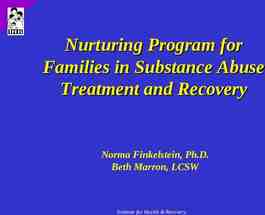Minnesota Victim Assistance Academy 2022 Ethics in Victim Services
19 Slides759.85 KB

Minnesota Victim Assistance Academy 2022 Ethics in Victim Services

Overview and Caveats This presentation is adapted from the Office for Victims of Crime Training and Technical Assistance Center (OVCTTAC) one-day Ethics in Victim Services course. It is an introduction to ethics in victim services. Jo and Rebecca are not “ethical gurus” or authorities.

Learning Objectives Increase self-awareness of how personal values, attitudes, biases, and beliefs influence responses to crime victims. Become familiar with the OVC ethical standards and NOVA code of ethics. Be able to identify unethical behaviors and practices. Be able to apply a standard decision-making process when faced with an ethical dilemma.

Definitions Values: the ideals or beliefs to which an individual or a group aspires. Morals: relate to making decisions between right and wrong. Ethics: articulation of standards of behavior that reflect those values or morals.

What are professional ethics? Set of standards based on proven and sound principles of conduct and quality of services. Created from/within a profession as a means of articulating what constitutes excellence in the field.

Personal Values v. Professional Ethics Much of the time are complementary. May conflict at times in the professional relationship. When they do, the professional relationship that focuses on the interests of the person being helped should be prioritized.

SELF-AWARENESS INVENTORY HANDOUT AND DISCUSSION

OVC Model Standards OVC’s National Victim Assistance Standards Consortium released model program, competency, and ethical standards in 2003; updated in 2017. Ethical standards for victim assistance providers relate to scope of services, coordinating with the community, direct services, and administration and evaluation.

NOVA Code of Ethics NOVA updated its Code of Professional Ethics for Victim Assistance Professionals in 2021 with some key revisions. Established the Office for Advocacy Ethics with resources, training, and consultation services.

Discussion of Ethical Standards At your tables: 1. Review the handouts with the OVC ethical standards and NOVA Code of Ethics. 2. Discuss how one or two of the standards apply to your own work. 3. Share an example with the larger group.

Foundations of OVC Ethical Standards Client autonomy, privacy, and selfdetermination. Objectivity and abstention from abuse. Honesty and equity of service. Compassion and respect for individuals. Social responsibility and confidentiality. Working within one’s range of competence.

Responsibility to Victims Maintain the interest of the victim while maintaining high professional standards. Do not discriminate. Withhold judgment. Establish and maintain boundaries.

Legal and Social Responsibility Respect and protect the victim’s civil and legal rights. Obey current state and federal laws as well as agency policies. Do not give legal advice to victims. Do not represent yourself as a counselor, therapist, or specialist in a particular victim field unless you have the credentials.

Responsibility to Self Identify potential conflicts of interest and make others aware of those conflicts. Conduct self in a manner that will promote mutual respect. Share knowledge and encourage proficiency and excellence in victim services.

Is It Ethical? Handout and Discussion

Common Ethical Issues Take a minute to share with your table an ethical issue you have faced in your job. Common ethical issues often center around: boundary issues multiple relationships confidentiality legal advocacy v. legal advice professional competence

Ethical Decision-Making Process Assess facts. Identify the ethical standard(s) that applies. Brainstorm at least three courses of action and the consequences of each. Consult peers and/or supervisor. Choose the best option and act. Evaluate: how could this situation be avoided in the future?

What should you do? Ali and Marie are advocates at a community-based organization serving sexual assault survivors. In addition to being colleagues, they are also friends on Facebook. Ali notices that Marie has posted a “survivor story” on Facebook about a former client to generate support for some new legislation their organization is working on to close a gap in the criminal sexual conduct statute. While she hasn’t named the survivor, enough detail is included that some people might be able to identify her. Apply the Ethical Decision Making Process to this situation in your group.

WRAP-UP AND QUESTIONS






